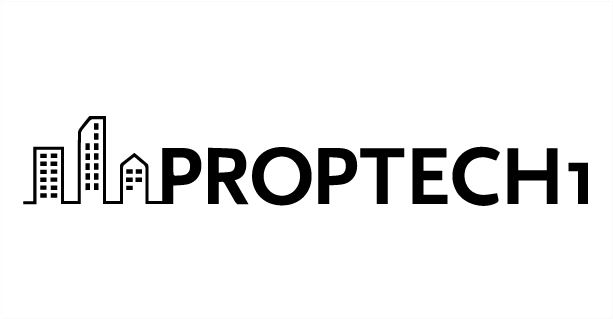When it comes to digital transformation and PropTech, what do you see are the main pains of the industry?
We think that the real estate industry is entering an age of disruption, with various drastic forces affecting the industry, Konstantinos Matsoukas, Proptech1 Ventures senior associate, says. Firstly, in terms of digitalization and automation, the real estate and construction industries are lightyears behind other industries. The second big challenge is the climate discussion. Ironically, this is hitting the real estate industry quite unexpectedly now even though we’ve known this about the effects of the climate crisis for decades. Even if the industry choses to further ignore this, regulations will come. The EU New Green Deal, for example, is just a first taste of how much the RE industry will have to transform. It can only do that with innovation, external innovation to be specific, because large corporate structures are too slow to adapt to sudden change. The third trend is the awakening of the customer. In other words, tenants have come to expect a high-quality customer experience, which they have become accustomed to from every piece of software they are using. Unfortunately, the real estate industry has a long history of ignoring the wishes of its customers, which is now coming back to haunt it.
How did COVID-19 affect you?
For the start-up ecosystem in general, fundraising activities became harder, which is why we held our money together for our portfolio companies because we knew it was going to be trickier for them to find new investors. Therefore, we used our capital for follow-on rounds and made use of the government programs, like the Corona Matching Facility. It all turned out to be only a dent in the road, as fundraising activity levels are now back to pre-Corona times, and we have also made investments in new companies in the meantime. It was also quite impressive to see how agile our portfolio companies were in adapting to the new situation and developing fitting solutions.
What is the size of the funds and tell us more about the company portfolio?
We are looking to raise up to €50 million for the first fund, and we’ve already reached three quarters of that. We have made investments in 10 different portfolio companies so far. Our founders raised more than €30M in Q2 2021, with 2 major growth rounds coming up in Q3/Q4 2021. All of the financing rounds of our new investments in 2021 were oversubscribed; yet the founders chose PropTech1 because they appreciate our smart money value-add beyond just financing.
Do you think there is a specific innovation or technology that has a unique selling point compared to others and that is being developed and adopted faster in the market?
We do not value a specific technology over another because the applied technology is only a means to an end. Different technologies can reach the same goals, and one can be better suited for a particular purpose than another and vice versa. But we believe what’s going to come more and more into focus is ClimateTech. So, anything that makes buildings, especially existing building stock, less energy intensive is going to have enormous market chances.
Therefore, PT1 invested in ecoworks, one of our most recent portfolio companies. ecoworks renovates existing buildings stock that is very common in Europe, using prefabricated modules. So, on the construction site, it takes only a couple of weeks to renovate an entire building and make it completely net-zero in terms of emissions. These kinds of solutions can make a great impact when trying to reach the goals of the Paris Climate Agreement.
What is the role of public authority and government policies on speeding up climate solutions and green technologies in real estate?
This will profoundly change the focus of PropTech/ConTech companies and also of real estate companies. On the one hand, this is due to the EU New Green Deal, which has very clear climate goals, and on the other hand, a program called FIT for 55, which was created to reduce net greenhouse gas emissions by 55% by 2030. The use of different kinds of technologies will be key in meeting these criteria.
How do you evaluate the technology or innovation of a certain startup before the investment?
Our investment team is hypothesis-driven. When we come across an exciting opportunity, thorough market research is conducted and all competitors across Europe are sifted through. We analyze who else might be tackling the same problem but may be doing a better job than the company that originally pitched us. There are different ways for startups to get into our investment funnel. All of our venture partners are experts in their respective fields, and they know where the pain points truly are. When we involve them in the evaluation, they provide us with valuable feedback whether the actual problem that is being solved is that big of a pain point. This procedure helps us to verify our assumptions at a very early stage of the process and distinguish cherries from lemons. After we’ve done that, we undergo the venture capital process, which involves due diligence, looking into technical, legal details, etc. In addition, we obtain further expertise from professionals in our network (often future clients of portfolio companies). Technologies in insulation material for example come to mind.
When it comes to PropTech and evaluating potential investments, would you say that you are searching for a disruptive technology?
The fact why it has taken so long for the real estate industry to become digitalized is that it is much harder to disrupt because we’re still talking about brick-and-mortar buildings. There are also not that many digital solutions for a problem of a physical project. This is why real estate startups for the most part do not try to disrupt the industry but create solutions that will help the industry become more effective. I believe this might still change in the future, as transformative effects of the climate crisis might completely, in one way or another, disrupt the real estate industry.
Do you think that it has matured yet? Have we gone fully digitalized?
In terms of digitalization, the real estate industry still has plenty of room to grow. Think about construction companies where pen and paper are still the tools of choice. Many more sectors of the industry are also lightyears behind. Additionally, in terms of the market maturity of PropTech startups, I think there’s still also a lot of room. We’re still mostly looking at early-stage companies, and only a few of the deals that we have on our table can be considered growth stages. However, the entire sector has matured enormously within the last five years. For example, five years ago, people didn’t even know what the term ‘PropTech’ even meant. Nowadays, it’s one of the hottest topics. So yes, it has rapidly grown, but it still has room to grow.
As a venture capitalist, you say that you have professionals in the field that are experts at recognizing novel technologies. However, how fast are large corporations recognizing and accepting these digital transformations? When do you think they should start recognizing the PropTech start-ups?
I think real estate companies are more and more forced to recognize those startups and technologies. COVID, actually helped accelerate the adoption of digital processes. There’s also a growing interest of the established players in the market to be on the forefront of innovation and technology. Usually, real estate companies aren’t very experienced at making startup investments, but every year they are learning more, they’re trying new things and becoming more active in that field. It’s also a matter of culture and generation. So, for example, when a younger generation of family-owned businesses takes over the CEO position, the willingness to introduce PropTech solutions to their companies rises significantly.
How do you see PropTech evolving as a whole ecosystem?
The market is going to mature, it’s going to become more central to the real estate industry itself. There is no sense or sign of stopping the growth, especially with the European market still being undervalued in comparison with the American market, where we’ve seen SPAC deals, IPOs and trade sales with enormous company valuations.
In Europe, valuations are still much tamer. Technology companies are valued higher just due to the fact that they are a scalable technology company, but not in a sense that we’ve seen in the US. Here in Europe, the highest valued PropTech company might barely be a unicorn, whereas in the US, AirBnB is valued around $100 billion. There’s just obviously a huge gap.
What is PropTech1 Ventures vision for the next five years in terms of growth?
Now we are trying to get on with our European expansion. We increased our presence in the Nordics and in the United Kingdom, as well as the Benelux. We will be looking to raise even larger funds in the coming years and also move into later stage investments.
Finally, what’s next? What advice do you give startups and corporations?
We are constantly looking to give advice to real estate corporations, trying to raise awareness that a drastic transformation is imminent. With the industry being the largest asset class in the world, yet so far behind in digitization, customerization and sustainability, corporates should definitely look into investing in startups, not just to solve their own problems, but also to participate in the growth of their shares in the startups.
If you lack the capabilities to build an evenly distributed portfolio, or have simply learned the hard way that corporate venture capital almost automatically brings about adverse selection, it is the best idea to invest in an independent venture capital investor that has been doing this business for decades. This allows you to participate in the growth of all these technology startups, which is not going to end any time soon.

Project Manager

